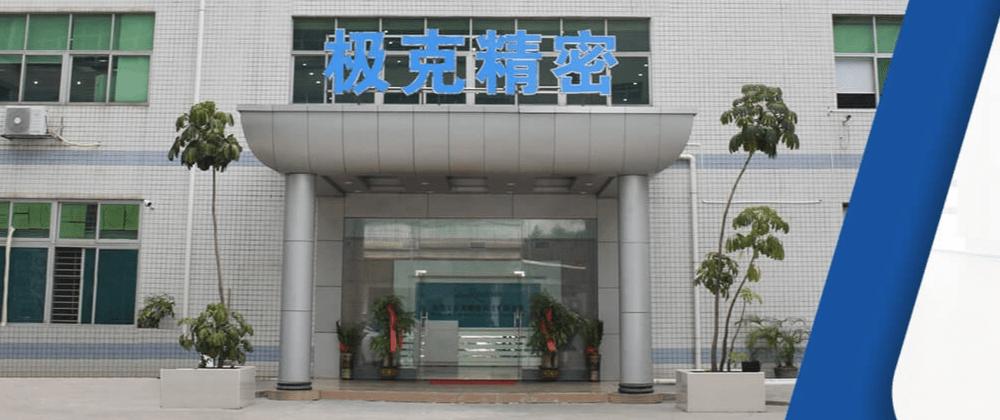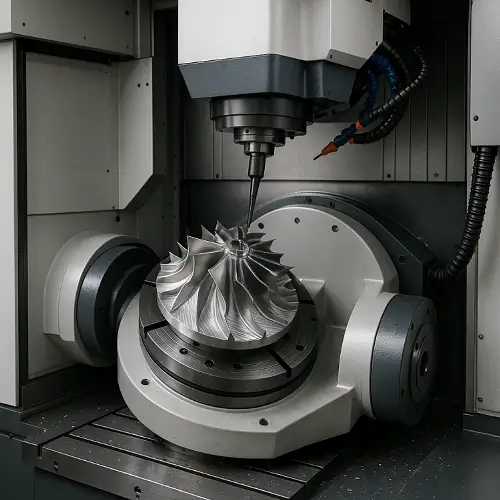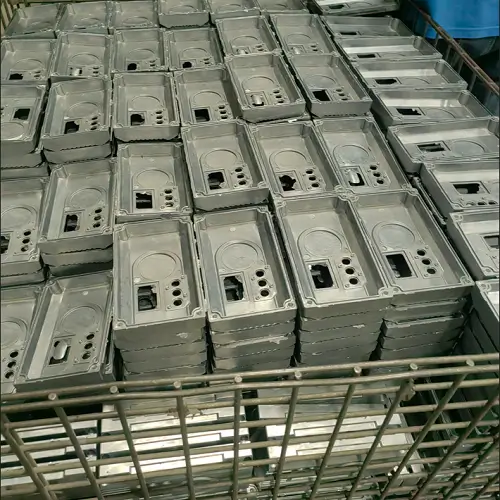China has long been recognized as a global hub for precision manufacturing. Among its strongest sectors, CNC machining stands out for its depth, scale, and technical maturity. With thousands of factories spread across industrial regions like Dongguan, Shenzhen, Ningbo, and Suzhou, China offers unparalleled access to custom part fabrication using materials like aluminum, stainless steel, and engineering plastics.
What Defines a Leading CNC Supplier?
Before diving into the list, it’s helpful to define the qualities that distinguish top-tier CNC machining providers. While every project is different, the best manufacturers typically share the following traits:
-
Wide Material Capability: From soft plastics to hardened steels, a full-service CNC shop should be able to handle multiple material types.
-
Precision Standards: Top-tier factories can maintain tolerances as tight as ±0.005 mm for complex geometries.
-
Post-Processing Integration: Offering finishes such as anodizing, powder coating, bead blasting, and polishing in-house or through controlled partners.
-
Fast Quoting and Production Cycles: Digitized quoting systems, clear DFM feedback, and streamlined scheduling.
-
Export Readiness: English-speaking support teams, experience with overseas clients, and familiarity with international packaging and documentation.
With those standards in mind, here is a breakdown of the most recognized CNC machining companies currently operating in China.
Top 10 CNC Machining Companies in China
| Company | Location | Capabilities | Specialization |
|---|---|---|---|
| Runsom Precision | Dongguan | CNC machining, 3D printing, injection molding | High-volume export manufacturing |
| RapidDirect | Shenzhen | CNC, sheet metal, die casting | Online quoting platform, batch production |
| WayKen | Shenzhen | CNC, vacuum casting, rapid tooling | Automotive prototypes, design validation |
| Gensun Precision | Dongguan | CNC machining, aluminum & zinc die casting | Export-ready components |
| Star Rapid | Zhongshan | CNC, vacuum casting, plastic molding | High-quality finish for global hardware |
| 3ERP | Zhongshan | CNC, low-volume production, 5-axis milling | Short-run machining |
| CreateProto | Shenzhen | CNC, urethane casting, rapid prototyping | Consumer electronics prototypes |
| TEAM Rapid | Zhongshan | CNC, plastic molding, die casting | Multi-process integration |
| HLH Prototypes | Shenzhen | CNC, SLA/SLS 3D printing, vacuum casting | Rapid prototyping across materials |
| DFM Rapid | Dongguan | CNC, vacuum casting, injection molding |
Limitations of High-Volume CNC Manufacturers
While the companies listed above are known for their manufacturing scale and service maturity, they also come with structural limitations—particularly for projects in early-stage development or requiring frequent design iteration.
Some of the typical drawbacks associated with high-volume CNC factories include:
-
High MOQs (Minimum Order Quantities)
Most tier-one suppliers are geared toward mid-to-large production runs. Requests for five or ten pieces often fall below their interest threshold. -
Slower Response Times
Because of organizational size, even basic quoting or DFM revisions may take days. The internal communication chain is longer, and access to engineers is limited. -
Less Flexibility in Engineering Input
Adjustments to tolerances, unusual design features, or exploratory geometries may be declined or heavily restricted due to rigid process flows. -
Tooling & Setup Delays
For factories focused on high throughput, short-run setup gets de-prioritized, resulting in longer lead times for custom orders.
For many global buyers—especially startups, product design firms, and R&D teams—these constraints can lead to delays, cost overruns, and missed deadlines.
Limitations of High-Volume CNC Manufacturers
While the companies listed above are known for their manufacturing scale and service maturity, they also come with structural limitations—particularly for projects in early-stage development or requiring frequent design iteration.
Some of the typical drawbacks associated with high-volume CNC factories include:
-
High MOQs (Minimum Order Quantities)
Most tier-one suppliers are geared toward mid-to-large production runs. Requests for five or ten pieces often fall below their interest threshold. -
Slower Response Times
Because of organizational size, even basic quoting or DFM revisions may take days. The internal communication chain is longer, and access to engineers is limited. -
Less Flexibility in Engineering Input
Adjustments to tolerances, unusual design features, or exploratory geometries may be declined or heavily restricted due to rigid process flows. -
Tooling & Setup Delays
For factories focused on high throughput, short-run setup gets de-prioritized, resulting in longer lead times for custom orders. -
Hidden Subcontracting for Small Orders
In many cases, small-batch CNC jobs are not handled in-house by large factories. Instead, they are quietly subcontracted to smaller shops—without the client’s awareness—resulting in inconsistent quality, untraceable responsibility, and duplicated markups.
For many global buyers—especially startups, product design firms, and R&D teams—these constraints can lead to delays, cost overruns, and missed deadlines.
Why Small-Scale CNC Suppliers Still Matter (JeekRapid Focus)
Not all engineering projects are suited to large-scale factories. In fact, the earliest and most critical phases of product development—concept testing, functional prototyping, limited field trials—often require a different type of manufacturing partner.
This is where small-scale CNC machining companies remain essential.
Unlike mass production plants, smaller workshops are optimized for flexibility, speed, and close technical collaboration. Clients are not routed through layers of project managers or impersonal quoting platforms. Instead, drawings are reviewed by engineers, materials are selected for the specific use case, and tolerances are negotiated with real production feedback.
jeekrapid maker
JeekRapid operates within one of China’s core machining regions, focusing exclusively on low-volume, high-precision CNC manufacturing. Unlike high-capacity vendors built for standardization, JeekRapid maintains flexible workflows, short lead times, and direct engineering involvement throughout each stage of production.
-
Fast Lead Times
3–7 working days for most aluminum, stainless steel, and engineering plastic components. -
No Minimum Order Quantity
From a single prototype to a batch of 500, each job is treated with the same process discipline. -
Material Expertise
JeekRapid machines 6061, 7075, 304, 316, POM, PC, and Nylon routinely—matching each to its mechanical use case. -
Integrated Finishing
Anodizing, polishing, sandblasting, and other finishes available with consistent visual and dimensional control. -
Engineer-to-Engineer Communication
Clients interact directly with technical staff, ensuring no translation loss or misinterpretation during DFM, tolerance setting, or design adjustments.
For buyers seeking fast iteration, dimensional accuracy, and responsive service without the constraints of factory-scale workflows, JeekRapid offers a dependable alternative rooted in real production experience.
Choose Based on Project Stage, Not Company Size
China remains a world leader in CNC machining for good reason—industrial clusters, access to raw materials, and equipment density across major regions are unmatched. The companies listed above represent some of the most established names in the sector, capable of delivering high-volume, export-grade components across a wide range of industries.
However, manufacturing success is not solely determined by supplier size. In early-stage development, design refinement, or small-lot production, a different set of priorities become essential: communication speed, low MOQs, iterative flexibility, and direct access to engineering support.
JeekRapid addresses these requirements through a focused, small-scale CNC machining model. By leveraging China’s supply chain while maintaining agile workflows and hands-on engineering, JeekRapid enables faster development without sacrificing dimensional accuracy or material performance.
For engineers prioritizing precision, responsiveness, and flexibility, JeekRapid offers a CNC solution aligned with the real pace and scale of product development.



